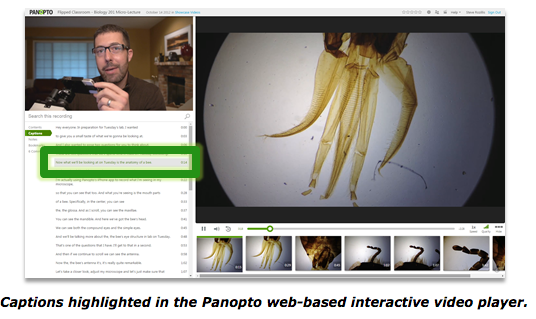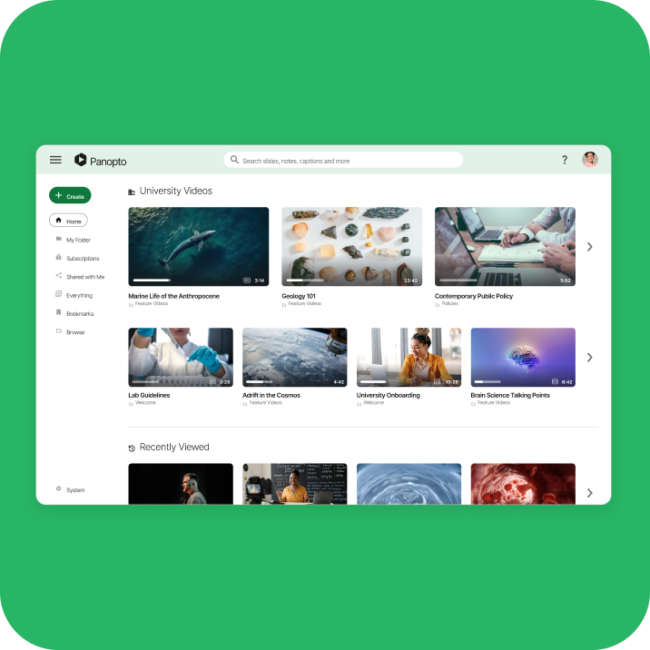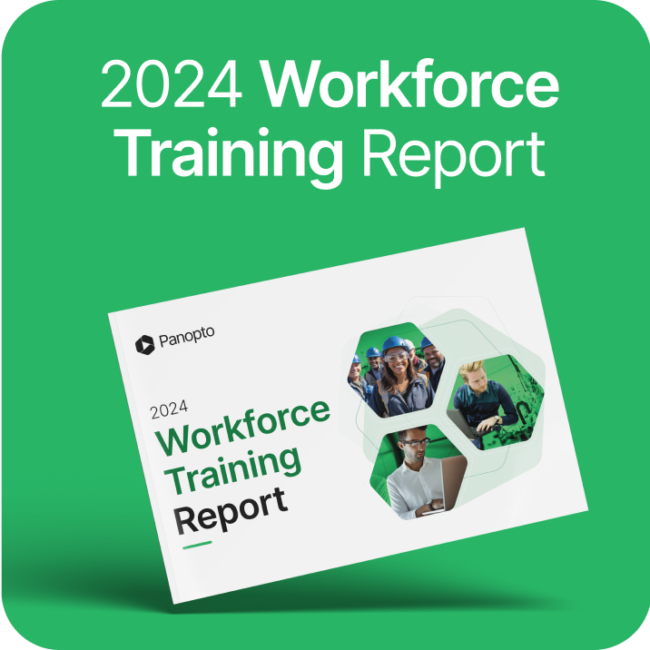- Academic Technology
Are Your Lecture Videos ADA and Section 508 Compliant? What Everyone Recording Lectures Needs to Know
On February 12, 2015, the National Association for the Deaf (NAD) filed a series of lawsuits against both Harvard and MIT, contending both institutions “discriminate against deaf and hard of hearing people by failing to caption the vast and varied array of online content they make available to the general public, including massive open online courses (MOOCs).”
In announcing the legal action, the NAD also shared a full statement, making clear its case and outlining the outcomes it targets. For the now-majority of academic institutions that deliver at least some learning materials online, a few points may well read as wake-up calls.
In its release, lawyers for the NAD comment, “Federal law prohibits MIT and Harvard from denying individuals with disabilities the benefits of their programs and services, including those provided to the public on the Internet. It is right that Harvard and MIT, which both receive millions of dollars of federal tax support, are mandated by our civil rights laws to provide equal access to their programs and services. The civil rights laws apply not only to services offered in brick and mortar places. They require equal access to electronic services on the Internet that modern technology makes possible.”
The statement also makes clear that the NAD expects to use the precedent set in these suits as a basis for insisting on broader change. Again from the release, “Our hope is that this lawsuit will change not only Harvard’s and MIT’s practices, but set an example for other universities to follow. These lawsuits seek to reform conduct. They do not seek money damages.”
That these charges have been brought against Harvard and MIT is no small signal itself. Both are charter members of edX — a consortium of schools and universities that provide free courses online — meaning both are established, longtime leaders in making online learning materials accessible. Likewise, both are private institutions — a status which offers more operational leeway than might be afforded a public university. If the NAD succeeds in its suit against these two defendants, the precedent set will likely apply to many if not most other academic institutions in the United States.
From One-Off To Requirement — Online Learning Materials Make The Leap
The NAD’s legal action against Harvard and MIT serves to underscore the incredible transition that’s happened over the last decade in the field of technology-enabled learning.
Only a few short years ago, recorded lectures, online courses, and micro-lecture podcasts were a pedagogical novelty — one-offs that enthusiastic educators embraced with the hope of offering students a better way to engage with and study the detailed information presented in class.
Fast-forward to not yet even decade since the very first implementations of lecture recording technology, however, and already today online learning tools have become an essential part of the learning environment.
Students report that online learning materials like recorded lectures provide an invaluable study aid, as well as a much-needed support system for those instances when they can’t attend a class in person. Those resources yield real results, too — lecture capture technology has proven to help boost classroom test scores and overall grades in those classrooms where it’s offered.
Accessibility Is A Must — Both For New Adopters and Existing Implementations
As lecture capture and other online tools continue to prove their worth in supporting the educational experience, more and more academic institutions are today taking what often began as small pilot projects and rolling them out across whole departments, schools, and campuses.
Now as academic administrators consider those technologies in the light of the NAD’s suits against Harvard and MIT, the lesson shouldn’t be to avoid new tools or to drag their heels in addressing new opportunities; rather, it should be to make comprehensive support for future accessibility needs a standard part of the assessment of any pilot project or expanded rollout.
For schools and universities new to lecture capture or with relatively small implementations, this might be as simple as adding your standard technology accessibility review process to any new product or contract review (and if you haven’t already, ensuring that ADA and Section 508-compliant captioning is specifically called out as a mandatory feature).
For institutions where lecture capture and other online learning tools have already been embraced, meanwhile, a greater effort may be required. After all, Harvard and MIT did offer captions in their lecture videos — but as the NAD case specifically states, the poor quality of the captions provided (often due in large part to inaccurate machine-based transcription) rendered the videos “confusing and sometimes completely unintelligible.”
Especially for those where online learning tools may have been homegrown or assembled from other technologies — now is clearly the time to review your system’s ability to support accessibility in general and captioning in particular. As Harvard & MIT have now found, even well-regarded systems may not be comprehensive enough to support true accessibility.
Related Reading: 14 Frequently Asked Questions About Video Captioning
How Panopto’s Video Captioning Supports ADA Compliance
Panopto fully supports ADA and Section 508-compliant captioning.
Captioning management is a part of the general settings for every video, and ordering new captions for any video can be done with just two clicks of a mouse. Panopto also enables users to upload existing captions as well. For a detailed look at how Panopto supports captioning services, check out our Support site.
For viewers, captions on Panopto are simple. Those watching a captioned video on our interactive web-based player can follow along just by clicking the “Captions” tab on the in-video navigation.

Importantly, for all those videos you may want to share publicly on a webpage — Panopto’s embedded video player also fully supports captioning. As you’ll see in the example below, viewers can simply click the closed-captioning “CC” icon to toggle captions on and off.
Make Sure Your Lecture Videos Are ADA and Section 508 Compliant
Although the cases brought forward by the NAD concern only Harvard and MIT today, forward-thinking organizations should take steps to recognize potential future implications. US-based schools and universities should be paying keen attention as this case progresses — as well should other institutions that both utilize video and receive some federal funding, including many nonprofits, non-US schools with US partnerships, and even some corporate training practitioners.
For more information on Panopto, including how the Panopto video platform can help your organization provide ADA and Section 508-compliant captions, contact our team today.




